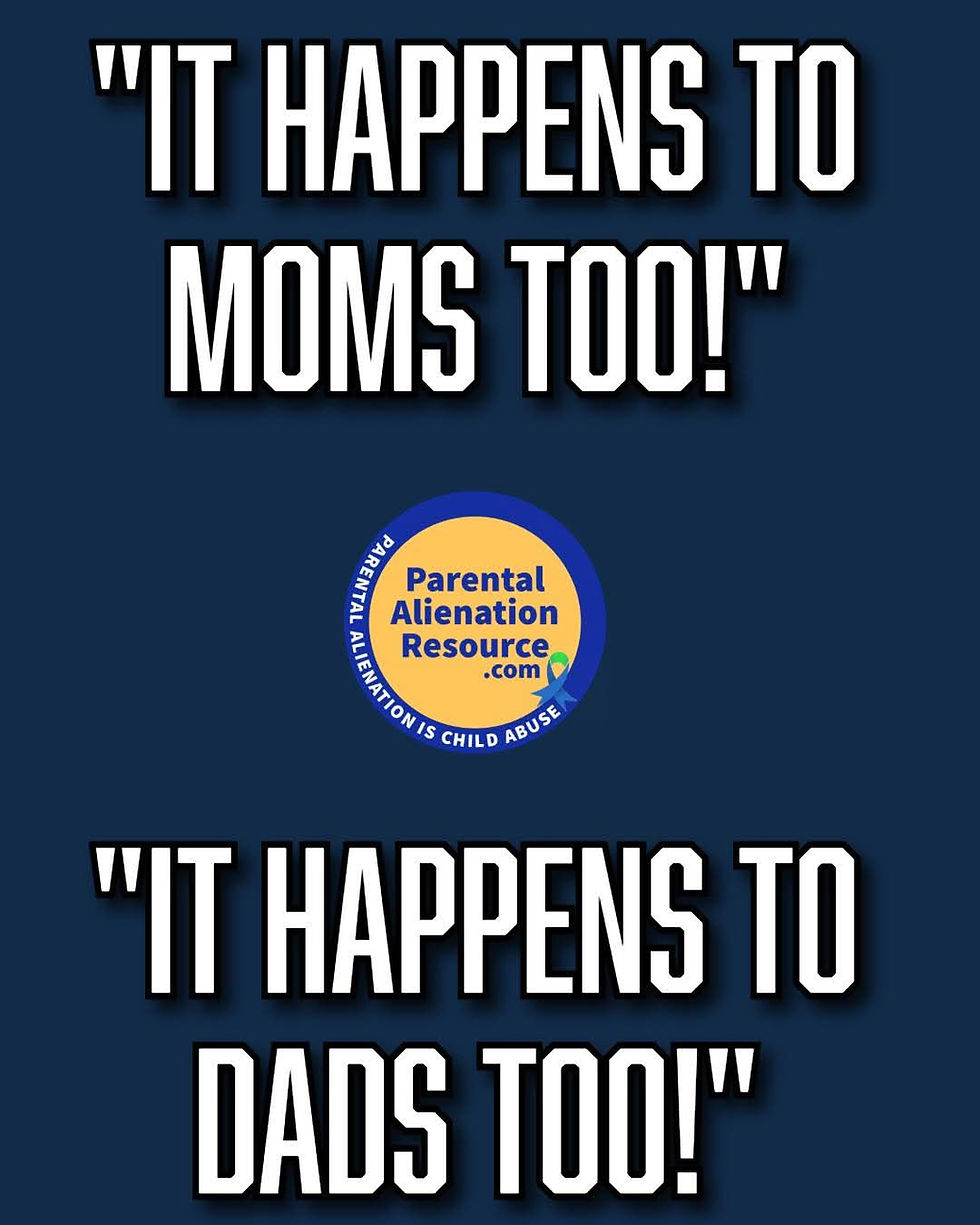How to Recognize if Your Child is Involved in a Loyalty Conflict
- Parental Alienation Resource

- Aug 13, 2023
- 2 min read

Recognizing if your child is involved in a loyalty conflict between parents can be challenging, as children may not openly express their feelings or concerns. However, there are several signs that may indicate their involvement in such a conflict:
Changes in behavior: Look for sudden changes in your child's behavior, such as increased aggression, withdrawal, or mood swings. They may also display signs of anxiety or depression that were not present before.
Excessive guilt: If your child feels guilty about spending time or enjoying activities with one parent due to the other parent's disapproval or influence, it could be a sign of loyalty conflict. They may express remorse for having a relationship with both parents.
Negative comments or alignment: Pay attention to any negative comments or aligning behaviors your child displays towards one parent when discussing custody or visitation arrangements. It could suggest that they feel torn between their parents and have taken sides.
Emotional distress during transitions: If your child consistently experiences emotional distress during transitions between households or before and after visits with one parent, it could indicate a loyalty conflict. They might feel torn between loyalties and struggle with the separation.
Reluctance to talk about one parent: If your child avoids discussing or expressing positive emotions towards one parent, it may indicate that they are trying to avoid conflict or maintain loyalty towards the other parent.
Protective or defensive stance: Children involved in loyalty conflicts may become protective or defensive of one parent, particularly if they feel pressured or influenced to favor that parent. They may vigorously defend or justify their actions or statements.
Lack of spontaneity or excitement: Notice if your child appears disengaged or lacks enthusiasm when spending time with either parent. They may feel burdened by the loyalty conflict and find it difficult to openly enjoy activities with both parents.
It's important to remember that these signs alone may not conclusively prove a loyalty conflict.
However, if you observe a combination of these indicators or notice persistent changes in your child's behavior, it might be beneficial to seek professional help, such as counseling or therapy, to address and navigate the loyalty conflict effectively.









Comments